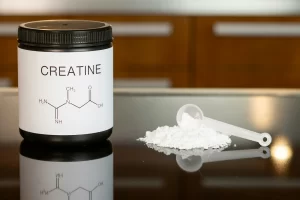This digital age of always-on connectivity has brought the whole world to our fingertips, but it’s also exposed us to a phenomenon that can have a concerning impact on our brain health: digital toxicity.
Our behavior — both online and offline — is being significantly influenced by our digital habits. Excessive consumption of social media, online news, and other content affects our mental, emotional, and physical wellbeing.
The causes and effects of digital toxicity
Information Overload: In an age where information is constantly at our disposal, the sheer volume can be overwhelming. The incessant notifications, 24/7 news cycle, and the barrage of updates from various apps can clutter our minds. This cognitive overload not only makes it challenging to discern essential information from the trivial, but can also lead to decision fatigue and reduced mental clarity.
Social Comparison: Social media, while certainly useful as a tool for connection, has inadvertently become a platform for comparison. As users are bombarded with curated highlights of other people’s lives, it’s easy to fall into the trap of comparing one’s own life to these idealized online personas. This constant juxtaposition can erode self-worth, amplify feelings of inadequacy, and foster a perpetual sense of lacking.
Sleep Disruption: Our screens are not just stealing our waking hours, but also encroaching upon our sleep. The blue light emitted by digital devices can disrupt the production of melatonin, a hormone responsible for regulating sleep. This interference can lead to difficulties in falling asleep, fragmented sleep patterns, and overall reduced sleep quality.
Physical Strain: Our bodies, too, bear the brunt of our digital habits. Hours spent hunched over screens can result in digital eye strain, which causes dry eyes, headaches, and blurred vision. Additionally, poor posture, often a byproduct of prolonged screen time, can lead to musculoskeletal issues. The sedentary nature of screen-based activities also raises concerns about physical health, from weight gain to associated chronic conditions.
The culmination of these factors can manifest in noticeable behavioral shifts. From the short-tempered irritability stemming from sleep deprivation to the reduced attention span due to constant digital distractions; from the social withdrawal as virtual interactions replace real ones to the compulsive need to check devices, indicative of addictive behaviors — the signs of digital toxicity are all around us.

Why a digital detox can improve brain health
A digital detox is more than just a buzzword — it’s a conscious effort to spend less time using digital devices, ensuring a balanced and healthy relationship with technology.
Digital detoxification allows you to destress, rejuvenate, and reestablish real-world connections. It’s about reclaiming time, redefining priorities, and resetting digital boundaries.
How to do a digital detox
With a structured and strategic approach, achieving a balanced digital life is achievable for everyone.
Scheduled Screen Time: Just as we allocate specific hours for work, exercise, or relaxation, it’s crucial to set boundaries for screen time. Determine hours when non-essential screen usage, like social media or entertainment, is permissible. Utilize apps like “Freedom” or “Stay Focusd” — or even the built-in systems that come with most phones now, like Apple’s Screen Time — to enforce these boundaries. These tools can block access to distracting sites during set hours, ensuring you remain committed to your digital detox goals.
Tech-Free Zones: Our environment plays a pivotal role in shaping behavior. By designating certain areas in your home, such as the bedroom or dining room, as tech-free zones, you create physical boundaries that encourage real-life interactions. This not only fosters better relationships, but also ensures activities like sleep aren’t hampered by digital distractions.
Offline Activities: Rekindle your love for hobbies that don’t revolve around screens. Whether it’s delving into the pages of a physical book, tending to your garden, crafting, or even cooking, these activities offer a refreshing break from the digital world, stimulating different facets of your brain and creativity.
Mindful Consumption: In the digital age, consumption often becomes passive. We scroll aimlessly, jumping from one app to another, one article to the next. By practicing mindful consumption, you challenge yourself to be intentional about your digital activities. Before diving into your device, pause and ask, “What is my purpose here?” Such mindfulness can drastically reduce unnecessary screen time and enhance the quality of digital consumption.
Physical Activity: The sedentary nature of prolonged screen time has been linked to various health concerns. Counteract this by incorporating regular physical activity into your routine. Whether it’s a brisk walk, a yoga session, or a rigorous workout, exercise releases endorphins, the body’s natural mood boosters, ensuring you feel rejuvenated and stay healthy.
Digital Sabbatical: Sometimes, the best way to reset is to disconnect entirely. Consider taking a digital sabbatical — a complete break from all digital devices. This could be over a weekend, a week, or even longer. Such breaks allow you to recharge, reflect, and engage with the world around you without digital filters.
The benefits of a digital detox
The journey of digital detoxification, while challenging, is immensely rewarding:
Improved Mental Wellbeing: A reduction in screen time correlates with decreased stress levels. Without the constant bombardment of notifications and information, the mind finds space to relax, leading to enhanced mood and mental clarity.
Enhanced Productivity: In the absence of digital distractions, focus sharpens. Tasks that previously took hours can be completed more efficiently, leading to increased productivity and a sense of accomplishment.
Better Sleep: The link between screen time and sleep disruption is well-documented. By limiting screen exposure, especially before bedtime, you pave the way for deeper, more restful sleep.
Strengthened Real-life Connections: Digital detox pushes you to engage more with the real world. This can lead to strengthened relationships as you spend quality time with loved ones, engage in meaningful conversations, and create lasting memories.
In wrapping up, the digital realm, with its myriad advantages, is here to stay. However, it’s imperative to navigate this space with awareness. Digital toxicity, with its associated challenges, is real. But with proactive measures like digital detox, we can harness the best of both worlds, ensuring a healthy, balanced, and mindful existence in this digital age.

About The Author
Dean Sherzai, MD, PhD
Dr. Dean Sherzai is co-director of the Alzheimer’s Prevention Program at Loma Linda University. Dean trained in Neurology at Georgetown University School of Medicine, and completed fellowships in neurodegenerative diseases and dementia at the National Institutes of Health and UC San Diego. He also holds a PhD in Healthcare Leadership with a focus on community health from Andrews University.
Get more brain science direct to your email inbox
Sign up for the Brain Docs newsletter for weekly recipes, brain teasers, neuroscience facts, podcast updates, and more — for free!



